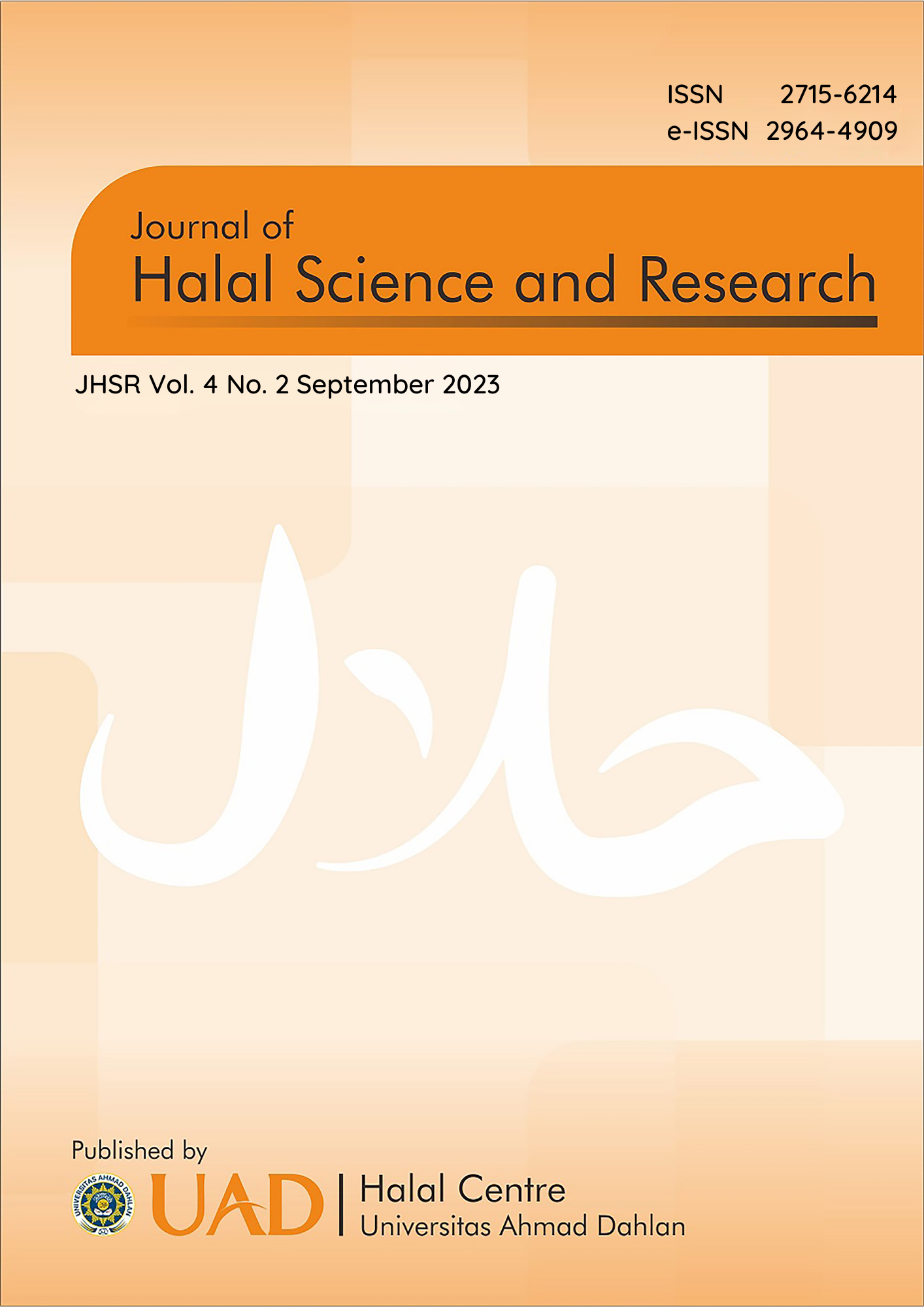Combination of PCR analysis and sequencing on cytochrome-b gene Canis lupus familiaris for halal authentication
DOI:
https://doi.org/10.12928/jhsr.v4i2.8754Abstract
The adulteration of beef with lower-priced meat, such as dog meat, is common to get economic profit. Dog meat is one type of meat that is not halal for consumption. There are several ways in which beef can be adulterated, including the use of dog meat. Specific primers for cytochrome-b (CYTBCA3-kh) can be used to identify the presence of dog meat contamination. This study aimed to identify dog meat using these primers. After conducting conventional PCR and agarose electrophoresis tests, the specificity of the primers was confirmed. Following this, the DNA base sequence was analyzed using a sequencing method to ensure accurate identification of dog meat contamination in beef. Specific dog primers tested on cattle, pigs, wild boars, goats, chickens, rabbits, and rats were confirmed using conventional PCR and agarose gel electrophoresis. Amplicon length verification was analyzed in a silico sequencing method using MUSCLE and BLAST NCBI software. The results showed that the primer CYTBCA3-kh amplified the canine Cyt-b mt-DNA gene specifically. The amplicon length obtained was 111 base pairs (bp), with a similarity value of 99.12% with Canis lupus familiaris mitochondrion, complete genome. The specific primer CYTBCA3-kh can be used to identify dog meat contamination in meatball products for halal authentication.
Keywords: CYTB gene, Halal Authentication, PCR, Sequencing, Canis lupus familiaris
Downloads
Published
Issue
Section
License
Copyright (c) 2023 Universitas Ahmad Dahlan

This work is licensed under a Creative Commons Attribution-NonCommercial-ShareAlike 4.0 International License.
Authors who publish with JHSR (Journal of Halal Science and Research) agree to the following terms:
1. Authors retain the copyright and grant Universitas Ahmad Dahlan right of first publication with the work simultaneously licensed under a Creative Commons Attribution-NonCommercial-ShareAlike 4.0 License (CC BY-NC-SA 4.0) that allows others to share (copy and redistribute the material in any medium or format) and adapt (remix, transform, and build upon the material) the work for any purpose, even commercially with an acknowledgement of the work's authorship and initial publication in Universitas Ahmad Dahlan.
2. Authors are able to enter into separate, additional contractual arrangements for the non-exclusive distribution of the journal's published version of the work (e.g., post it to an institutional repository or publish it in a book), with an acknowledgement of its initial publication in Universitas Ahmad Dahlan.
3. Authors are permitted and encouraged to post their work online (e.g., in institutional repositories or on their website) prior to and during the submission process, as it can lead to productive exchanges, as well as earlier and greater citation of published work (See The Effect of Open Access).

This work is licensed under a Creative Commons Attribution-NonCommercial-ShareAlike 4.0 International License.




